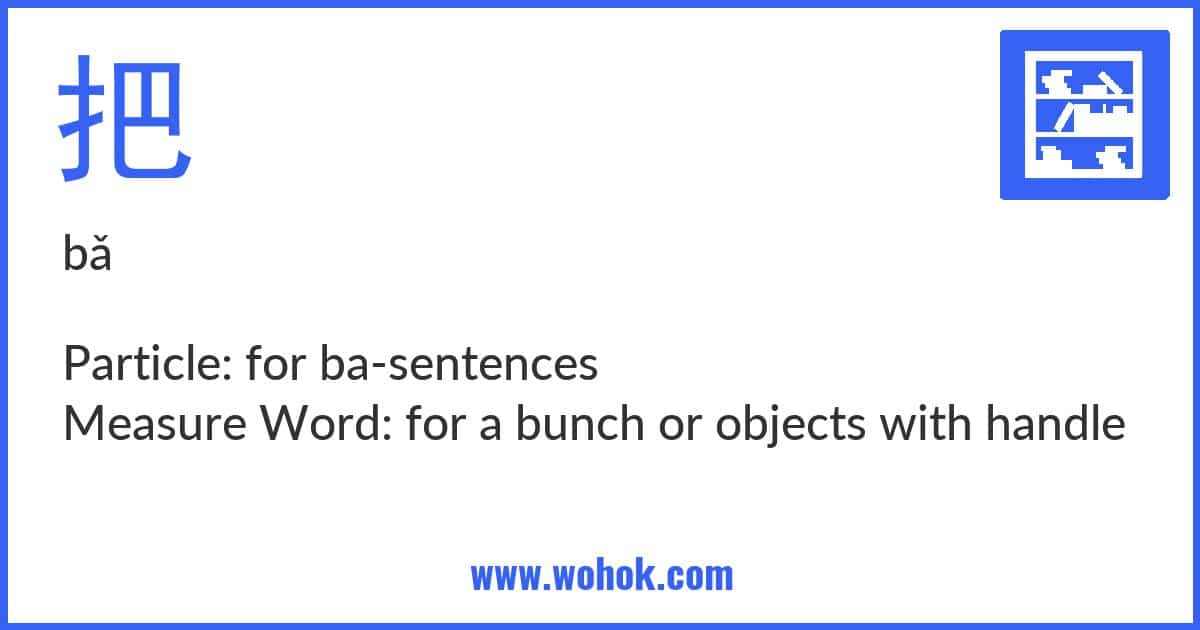The Chinese word 把 is a versatile particle that is commonly used to indicate the object of an action in a sentence. It is often placed before the noun or pronoun that serves as the object of a verb, and can help to clarify the relationship between the subject and the object. For example, in the sentence “我把书放在桌子上”, the word 把 is used to indicate that the subject is performing an action on the object, and that the object is being placed in a specific location.
Translation
Particle: for ba-sentences
Measure Word: for a bunch or objects with handle
Pronunciation
Example Sentences
| Chinese | Pinyin | Engish |
|---|---|---|
| 把书放在桌子上 | bǎ shū fàng zài zhuō zi shàng | Put the book on the table |
| 我把钥匙忘在家里了 | wǒ bǎ yào shi wàng zài jiā lǐ le | I left the keys at home |
| 他把车停在了路边 | tā bǎ chē tíng zài le lù biān | He parked the car on the side of the road |
| 她把衣服洗了一遍 | tā bǎ yī fu xǐ le yī biàn | She washed the clothes once |
| 把这个问题留给我吧 | bǎ zhè ge wèn tí liú gěi wǒ ba | Leave this problem to me |
| 他把那个箱子搬上了楼 | tā bǎ nà ge xiāng zi bān shàng le lóu | He carried the box upstairs |
| 我把这个苹果切成两半 | wǒ bǎ zhè ge píng guǒ qiē chéng liǎng bàn | I cut this apple into two halves |
| 她把自己关在房间里 | tā bǎ zì jǐ guān zài fáng jiān lǐ | She locked herself in the room |
HSK
把 is part of HSK Level 3 in HSK 2.0. In the newer HSK 3.0 it is part of HSK Level 3.
Learning Card


